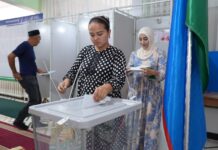With North and South Korea fielding three joint teams in this year’s Asian Games, we take a look at the significance of the initiative and the possible drawbacks for both countries
Text Thomas Inhye Lee
“On the international front, the two sides agreed to demonstrate their collective wisdom, talents, and solidarity by jointly participating in international sports events such as the 2018 Asian Games.”
This was fourth of six pledges in the joint declaration signed by South Korean President Moon Jae-in and North Korean leader Kim Jong-un at a historic summit in April 2018 to formally end the 1950s Korean War. And as the upcoming Games looms, all eyes will undoubtedly be on the combined Korean delegation, as both sides work out ways to organise their athletes in the most medal–winning combination.
Related: The Politics of Sports in the Asian Games
North and South Korea had initially earmarked seven of this year’s Asiad events – table tennis, basketball, judo, soft tennis, hockey, canoeing, and rowing – for participation from athletes of both sides, but the fate of this lineup was thrown into uncertainty after the Olympic Council of Asia (OCA) denied requests to increase the size of the mixed team, Korea Sports Council chairman Lee Ki-hong announced after his meeting with OCA president Sheikh Ahmad Fahad Al-Sabah earlier this year. In contrast, the International Table Tennis Federation allowed the two states a larger joint team at the World Championships in May.
Related: The Uniquely Southeast Asian Sport of Sepak Takraw
With a smaller than expected number of athlete entries, there will inevitably be some players excluded from participating, and this has created a dilemma for the Koreas, whose joint women’s ice hockey team at last year’s winter Olympics faced criticism from Seoul that a shared team arrangement deprived Olympic-standard athletes from both sides from competing. South Korea’s football association has also been vocal about its disapproval, saying the move calls for unnecessary sacrifice from its players, who will be exempted from the country’s mandatory two-year military service if they bring home a gold from the Games.
Currently, the only sport where a united endeavour might still be possible is canoeing, since both states lack a national team. The Korean Canoe Federation has been preparing for a joint entry since late 2017, and is scheduling open practice sessions on either side of the border: at the Han River in Seoul and the Daedong River in Pyeongyang. The canoers will compete under the Korean Unification Flag.
Related: How Gaming Became an Athletic Event
For other stories from this issue, see Asian Geographic Issue 131, 2018











